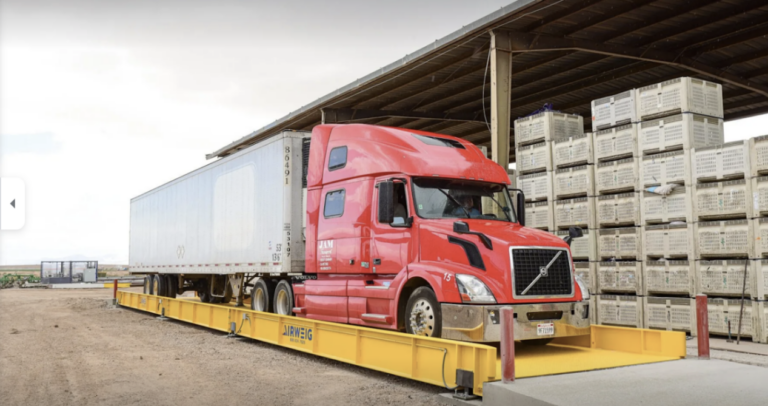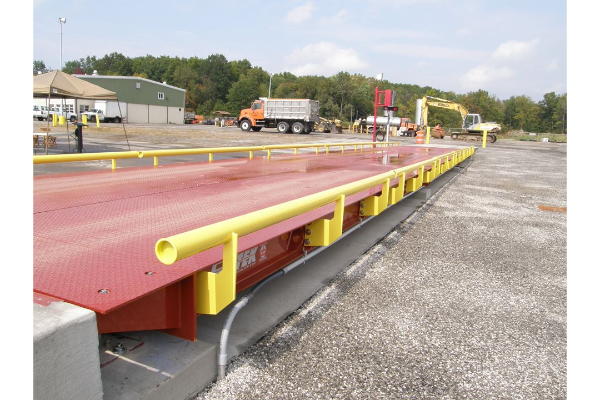Truck scales play a critical role in industries ranging from logistics to manufacturing, helping ensure that the weight of loads is accurately measured for legal, safety, and efficiency purposes.
Choosing the right truck scale can have a significant impact on operational efficiency, safety, and regulatory compliance.
Here are the top features to look for when selecting a truck scale:
1. High-Accuracy Weighing Capacity
The primary function of a truck scale is to provide accurate weight readings, and this can only be achieved through precise sensors and weighing technology. Look for scales with high accuracy, typically in the range of 0.1% to 0.25% of the total weight. This ensures that every load is weighed correctly, reducing the chances of costly overloading or underloading issues.
2. Durability and Material Quality
Truck scales are subjected to harsh environments, including extreme weather conditions, heavy truck traffic, and constant vibration. Opt for a scale constructed from high-quality, durable materials like stainless steel or heavy-duty steel to ensure resilience. These materials can resist corrosion and damage, ensuring that your scale lasts for many years with minimal maintenance.
3. Capacity and Size Options
Truck scales come in various sizes and weight capacities, so it’s essential to select one that aligns with your needs. Ensure the scale can accommodate the maximum weight of the heaviest trucks expected to use it. Common capacities range from 40,000 lbs to 200,000 lbs or more. Additionally, the scale’s platform size should accommodate the length and width of the trucks you will be weighing.
4. Ease of Installation
Consider ease of installation when selecting a truck scale, as some models require less groundwork and are simpler to set up. Depending on your needs, you can choose between portable truck scales, which can be easily relocated, and permanent, foundation-mounted scales. Portable scales are ideal for short-term projects or mobile operations, while permanent scales are suitable for long-term installations.
5. Advanced Load Cell Technology
Load cells are integral to the functioning of truck scales, as they measure the weight applied to the scale’s platform. Modern truck scales often feature digital load cells, delivering exceptional performance, reliability, and accuracy. Look for truck scales that use advanced load cell technology to enhance precision, minimize error, and withstand heavy-duty usage over time.
6. Weather Resistance and Protection
Outdoor truck scales need to be able to handle a variety of environmental challenges, such as rain, snow, dust, and extreme temperatures. Ensuring that the scale has weather-resistant features such as sealed electronics, anti-corrosion coatings, and weatherproof junction boxes is essential to prolong the scale’s life and minimize maintenance.
7. User-Friendly Interface
A user-friendly interface is crucial for efficient scale operation. Many modern truck scales feature digital displays with easy-to-read readouts, remote operation, and data logging capabilities. The control software should be intuitive, with features such as data export options, easy calibration, and system diagnostics. Choose a truck scale with a control panel that makes it easy to view weight data, track trends, and ensure smooth operations.
8. Integration Capabilities
To maximize efficiency, it’s beneficial to select a truck scale that can integrate seamlessly with other systems. For example, look for scales that can connect to inventory management software, transportation management systems (TMS), or ERP systems. This allows for better tracking of loads, scheduling, and reporting, resulting in improved operational efficiency and data accuracy.
9. Legal-for-Trade Certification
If your truck scale is used for commercial transactions, it must be certified “Legal-for-Trade” (also known as NTEP-certified in the U.S.). This certification ensures that the scale meets the necessary legal and regulatory standards for weight measurement, providing peace of mind that your measurements are accurate and compliant with industry regulations.
10. Maintenance and Support
Like any piece of heavy equipment, truck scales require periodic maintenance to ensure they continue to function at their best. When selecting a truck scale, consider the manufacturer’s reputation for providing ongoing support, including maintenance plans, troubleshooting, and replacement parts. Choose a scale from a manufacturer with a proven track record for customer service and support.
11. Cost-Effectiveness
While it’s tempting to focus solely on the upfront cost of a truck scale, it’s essential to consider the long-term costs associated with the scale’s maintenance, energy usage, and lifespan. Choose a scale that offers a good balance of cost and performance, taking into account your specific operational needs. While high-quality, durable scales may come with a higher upfront cost, they provide substantial long-term savings through extended lifespan and reduced maintenance needs.



Comments are closed.